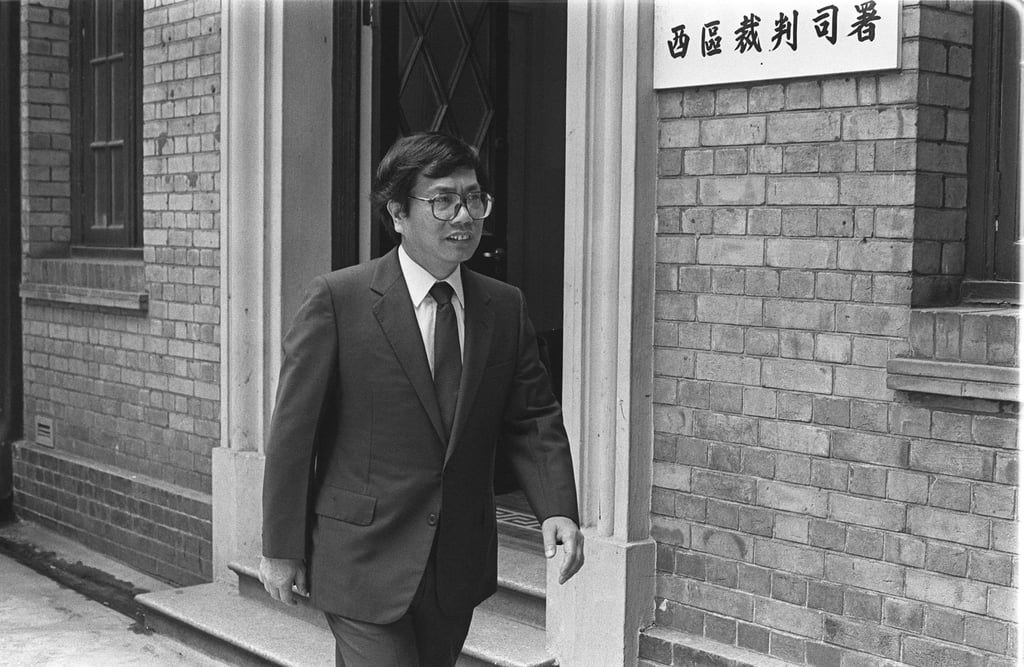The Cantonese financial-crime thriller The Goldfinger, based on one of the biggest financial frauds in Hong Kong, rings true even today as Hongkongers seem to be vulnerable to financial scams and deceptions in their pursuit of quick riches.
Dubbed the Asian Wolf of Wall Street by some movie-goers, the film, which was released at the end of last year, deals with the Carrian fraud case of the early 1980s, showcasing Hong Kong’s vulnerability in dealing with fraud and corruption, as well as the breadth and complexity of the crime.
Last year, financial losses involving deception cases in Hong Kong nearly doubled in value to a record HK$9.18 billion (US$1.15 billion), while the number of cases jumped 42.6 per cent to 39,824. Investment scams accounted for HK$5.9 billion of those losses. The Hong Kong police are working with experts from the tech industry to combat deception cases related to artificial intelligence.
The Carrian fraud case refers to the rapid rise and collapse of the Carrian Group, a Hong Kong conglomerate, in the early 1980s. Through a complex web of fraud and corruption, the company’s senior management artificially inflated the perceived value of the group, leading to a speculative bubble in the Hong Kong stock market.
However, this was unsustainable. The company went bankrupt in 1983 after multiple allegations of fraud and the murder of a bank auditor, resulting in significant losses for investors and banks.
The Independent Commission Against Corruption (ICAC) and its task force conducted exhaustive investigations into offences relating to corruption and fraud. The ICAC finally brought the criminals to justice in a case that lasted nearly two decades and involved problem loans totalling HK$6.6 billion.

Businessman George Tan Soon-gin, the mastermind behind the Carrian Group, pleaded guilty to two offences of conspiracy to defraud and was sentenced to three years’ imprisonment in 1996.
Key managers at Bumiputra Malaysia Finance, a Hong Kong unit of Bank Bumiputra Malaysia, were also sentenced for conspiracy to defraud and accepting bribery. Other foreign banks’ employees were also involved.
While the film’s plot is relatively straightforward, fraudsters nowadays resort to elaborate measures and rely heavily on technological innovations, impersonations and easy flow of money, to cheat people. Losses involving cybercrime cases reported in Hong Kong jumped 31 per cent to HK$2.66 billion in the first six months of 2024, compared with a year ago.
The Goldfinger’s director and screenwriter Felix Chong Man-keung shared his thoughts with the Post on his film starring Tony Leung and Andy Lau, and how the Carrian fraud case compares with scams today.

What made you come up with a film based on this fraud?
I was surrounded by this kind of financial news since I was a child in the 1970s. Even then, I noticed how some people were able to become rich overnight through the stock market, only to later be burdened with huge debts.
As some of my friends’ family members who worked for the Carrian Group ran away when the scandal took place, it piqued my interest in this scandalous episode of Hong Kong’s financial history.
Tell us more about your filmmaking thought process?
Hong Kong is a city that allows capital to flow in and out freely, like a colosseum where financially literate people engage in the game of money. During this process, it is easy for some people to cross a line and become involved in illegal activities when they are driven by the pursuit of profits.
While filming, I felt that the Carrian case, or the film, actually reflects the core values of Hong Kong, even though I didn’t initially intend for it to do so. Many Hongkongers are solely focused on pursuing profits, and I’m not here to judge this value system – it’s a key part of what has made Hong Kong successful, but sometimes this could be the origin of some tragedy stories.
What have we learned from the Carrian case and how does it compare with the latest financial frauds?
In terms of financial literacy, the plot of the Carrian case is relatively simple by today’s standards. This simplicity allows the general public to easily understand the story.
Financial fraud is a tug of war between the rule of law and scamsters. Hong Kong has improved and tightened rules and regulations aimed at combating new types of financial fraud and scams over the past few decades.
However, financial fraudsters often seem to be a step ahead, as they have larger incentives and are willing to risk their lives for their crimes.
Had the Carrian saga not coincided with a financial crisis and stock market collapse, the group’s chairman would have escaped unscathed.


